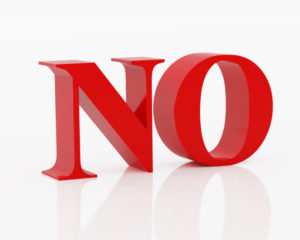This morning my wife shared with me the comments that subscribers wrote on unsubscribing from the emails. The email triggering the most responses in 2020 concerned my post from May, entitled “What Fauci and his fanboys can teach you about Affairs.”
My post was a warning about the risks of trusting regarding COVID to a single doctor who never personally treated anyone for it along with having a financial stake in the promoting his vaccine solution.
Although the focus was on the importance of trust and how COVID recommendations have impacted the ability to trust. At times the contradictory recommendations were impacting trust. Some readers reacted strongly to the message. They insisted that trust will not be diminished by the virus and actions taken in dealing with it such as masking. My message about how masks will impact our ability to trust others was scoffed at by some readers at the time.
They also took offense at my use of the term ‘fanboy’ in reference to those trusting his ‘expert’ status without question. I come from a generation raised to ‘question’ everything. My generation not only questioned things, they were also suspect of self-proclaimed experts.
My generation also knew the difference between the scientific method for making discoveries versus scientific consensus. Consensus consists of using groups psychology techniques for shutting down opposing views.
Being from such a generation, I dare questioning ‘experts’ and why I should trust them. Many of the ‘experts’ are taken aback at my questioning. They don’t realize I have no problem trusting them or anyone, if proper ‘due diligence’ is done on their part. It’s the job of experts to prove they are deserving of our trust even when they say they are.
Being a therapist, I see how often people lie about their achievements, their relationships, their financial status and their accomplishments. The fanboy behavior being so prevalent these days reminds me of blind faith in religion and religious leaders.
I even dare to research their lives, their writings and background. Even when attending professional conferences, I look at the speakers backgrounds and dare asking them questions.
In questioning “why I should trust someone” I learn things. It also gives me greater clarity concerning my reason for trusting them.
My experience has taught me that the harder I look, the more I realize what they do – and don’t do.
Giving someone your unquestioned loyalty is a recipe for trouble. All the expert has to say is ‘trust me’, and some people blindly trust them. I prefer looking behind the curtain to see if there’s a reason for trusting them.
You may have even blindly trusted your spouse. It sounds romantic, yet in working with couples over decades, you really need something solid to trust in rather than blind trust. When I have something solid, I feel more secure in trusting someone.
You can base your trust on their honesty, knowing their heart, experience in how they keep their promises, or their sincerity. What you base it on depends on how big a risk you’re willing to take.
When you have a solid foundation for trust, it gives you more to work with instead of blindly trusting them. At those times you can tell yourself “I trust him because he showed me he is trustworthy by keeping his promises to me…”
If you’re one of those who continues blindly trusting your spouse for no clear reason and want something more solid, there’s hope. In the video “How Can I Trust You Again?”, I address the foundations of trust and what you can do to have them in your marriage.
When you click and download it, you can start making changes in going from blind trust to having a reason for trusting, or not trusting depending on what happens.
Keeping It Real,
Jeff













